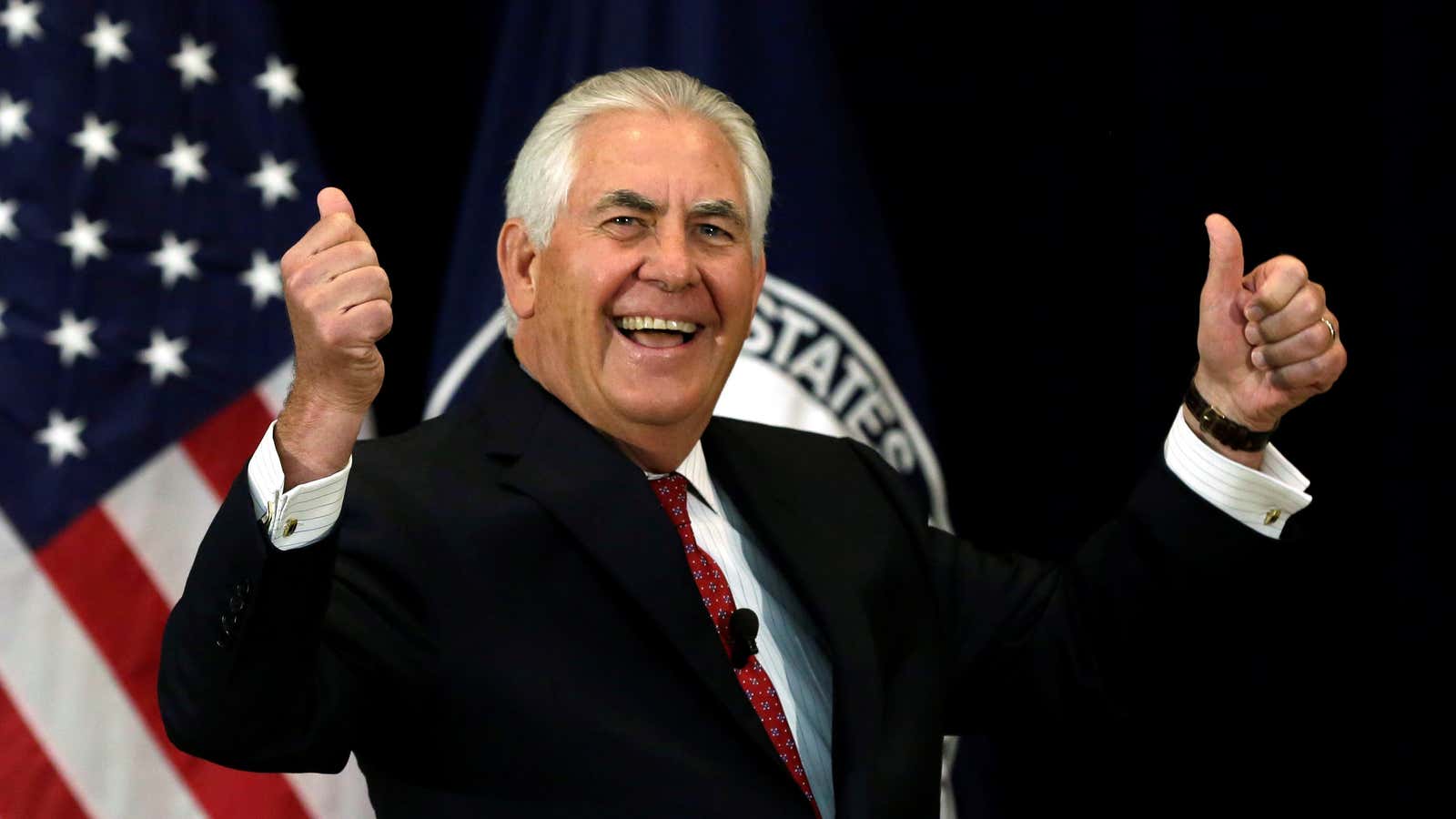The US State Department’s hiring freeze in 2017, ordered by Rex Tillerson, its leader at the time, caused staffing shortages that “placed at risk highly classified information,” among other issues. That’s according to an Inspector General’s report released today (pdf) that lays out a broad range of deleterious impacts the freeze had on America’s diplomatic corps.
An unidentified bureau within the State Department “worked with Top Secret/Sensitive Compartmented Information systems,” and members of it told the IG’s office that “extended vacancies in its information security positions” had endangered the data, the report states.
Another bureau explained it was unable to fill an Information Systems Security Officer position for the entire duration of the 16-month freeze, which, the report says, “affected its ability to ensure IT security for a major Department system.”
A State Department data-encryption initiative was also delayed due to the freeze, as was the implementation of an identity-management system, an enterprise risk management program, and the development of “tools and procedures to react and respond to malicious cyber activity targeting Department personnel and information assets.”
Donald Trump has vowed to reduce the size of the federal workforce, at times threatening to shutter entire agencies. His administration has also described reports of promises to cut Washington’s payroll as “untrue and misleading,” although nearly 20,000 federal jobs were eliminated during Trump’s first 15 months in office.
Beyond cybersecurity, the department’s 2017 hiring freeze also undermined overseas youth programs, AIDS initiatives, counternarcotics programs, and more.
Unfilled job openings within the Bureau of Consular Affairs’ Office of Children’s Issues “hampered its ability to support parents whose minor US citizen children had been abducted by family members,” explains the report.
One agency was “unable to fill a position to support an urgent need related to counterterrorism efforts in Iraq and Syria.”
And the Bureau of Population, Refugees, and Migration chose “not to fund certain humanitarian programs in the early stages of the Venezuela crisis in 2017 because it lacked staff to oversee the work.”
Morale suffered badly during the freeze, State Department staffers told IG auditors, with 100% of bureaus and officers and 97% of embassies and consulates describing it as having been “somewhat” or “very” negative.
“[I]t is impossible to overstate the negative impact of the hiring freeze on employees,” says the report. “Employees felt both overburdened and stuck in their careers, as there was no mechanism for lateral movement or promotion. The hiring freeze conveyed a message from Department top leadership that our work and mission, and the talents and well-being of our employees, were not valued.”
